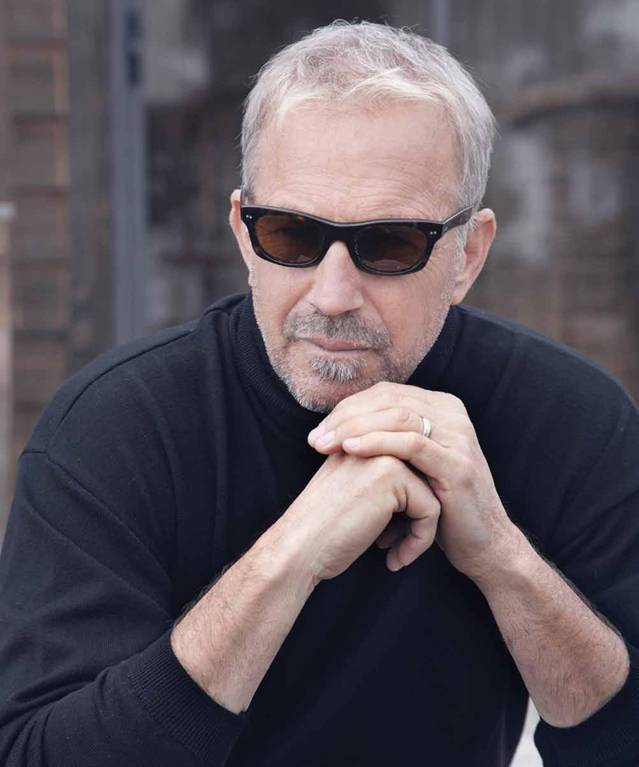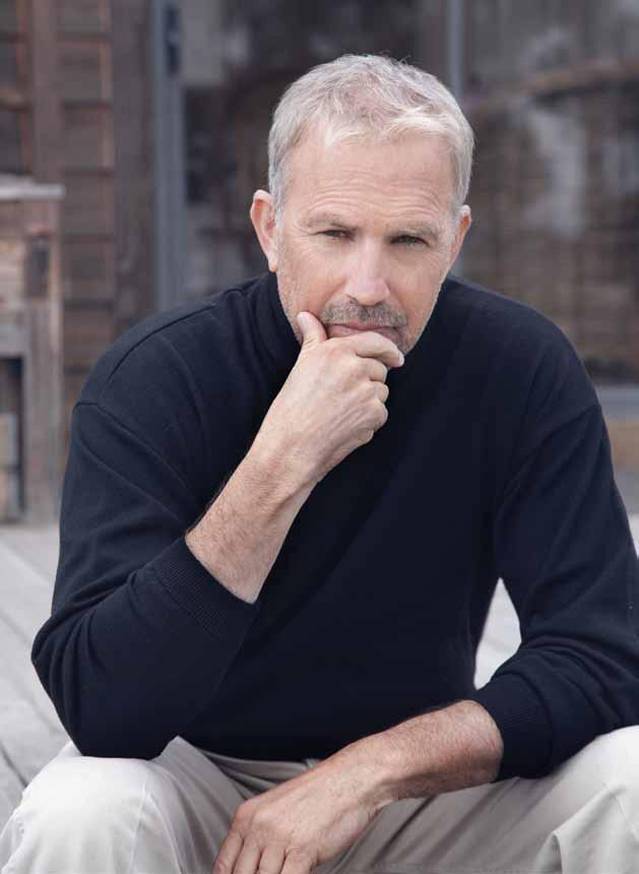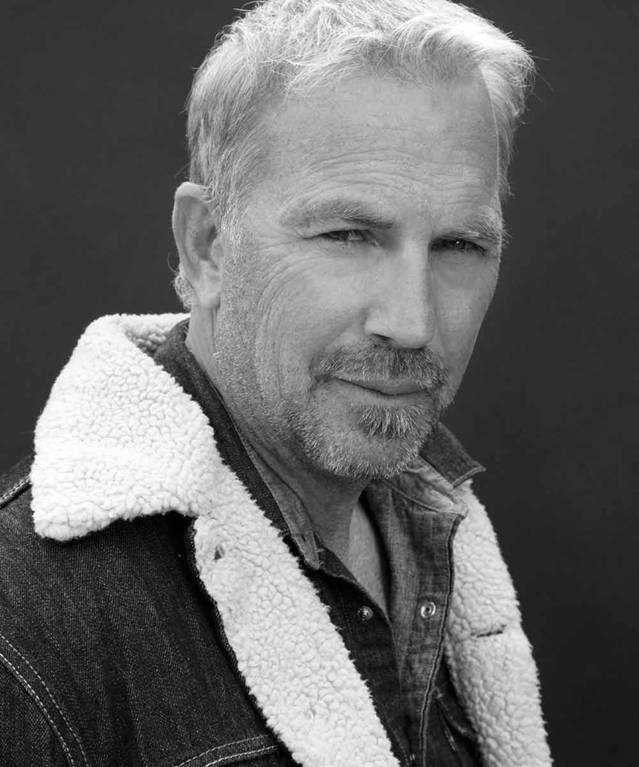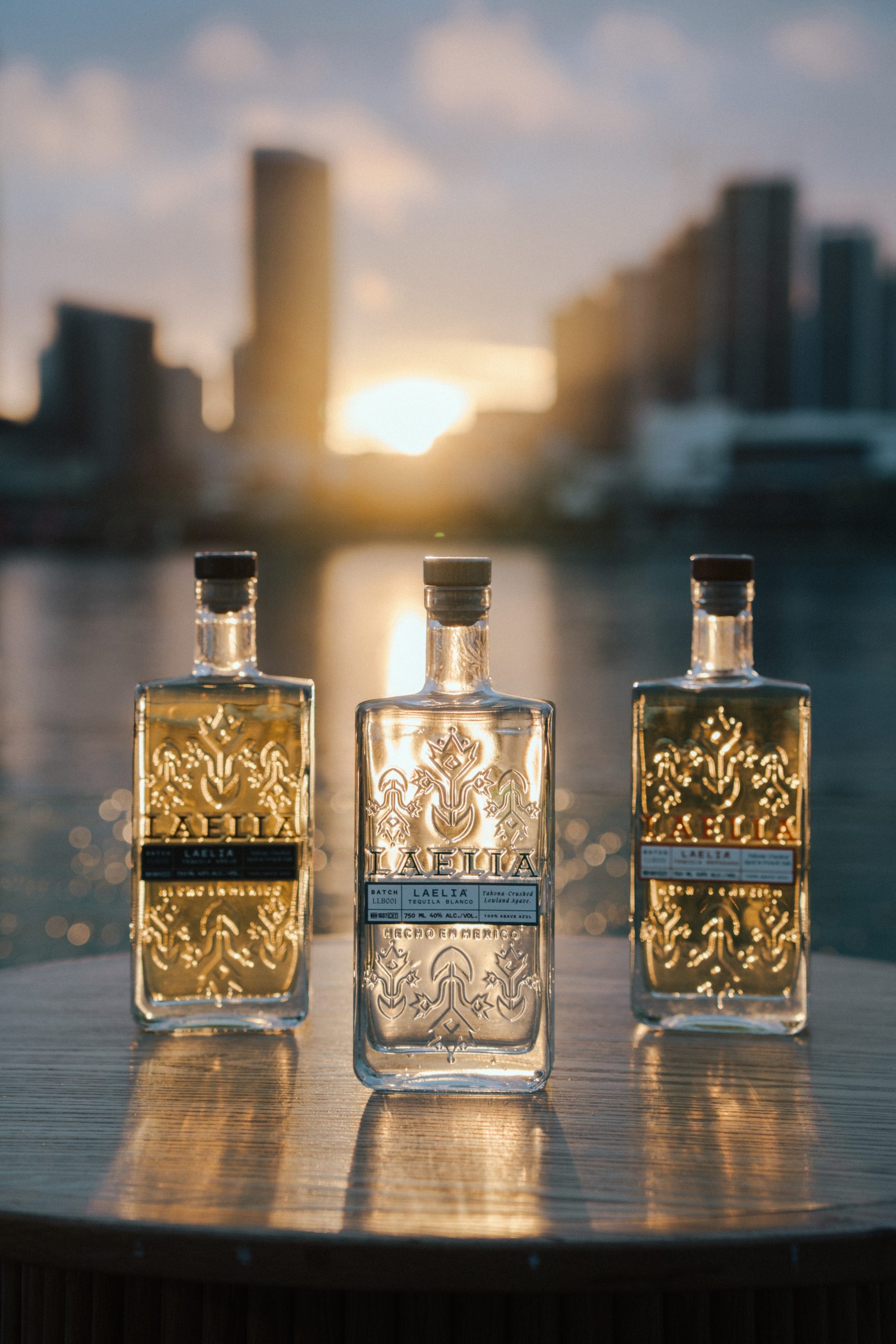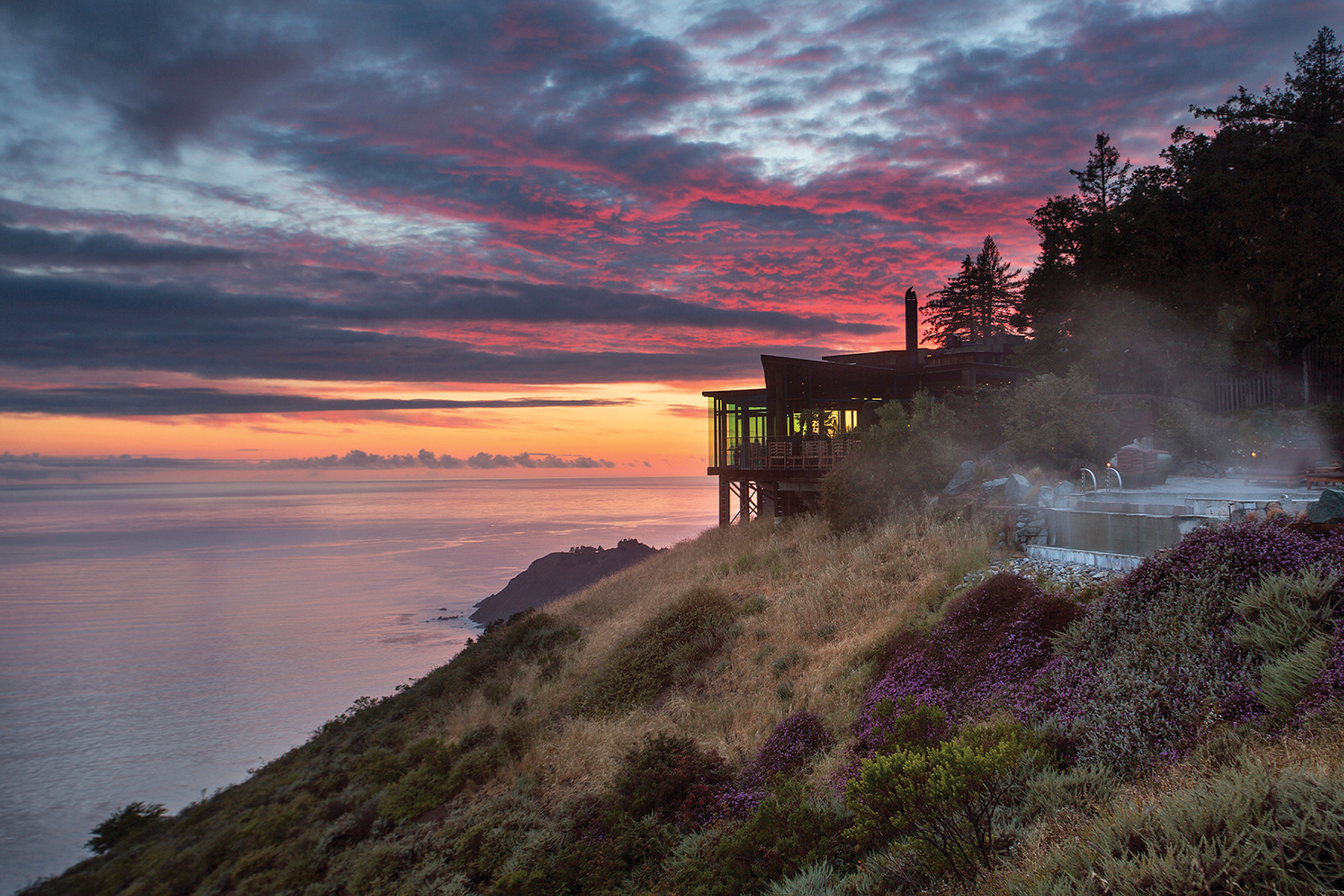The Man, The Myth, The Legend – Kevin Costner
[highlight_text] Despite his unmitigated success, Costner is no stranger to the idea of hard work. Some of his greatest successes and legacies as an actor were hard earned, some teetering on the brink of not happening at all. [/highlight_text]
At the risk of sounding cliché, Kevin Costner is just a regular guy. Despite his laundry list of achievements in the entertainment industry—both in iconic starring roles and successes as a film producer—Costner is unaffected and down to earth. For our 1 p.m. phone interview, he calls at 1 p.m. sharp, sounding exactly like, well, Kevin Costner. He’s well spoken, intelligent and does his best to answer questions honestly, the passion for what he does evident in every single sentence. It seems that this is one successful actor who both deserves and appreciates his achievements. And there are many.
While Costner’s list of films includes notable titles like Field of Dreams, Dances with Wolves, the Bodyguard, Waterworld, Mr. Brooks, Message in a Bottle, The Company Men, Swing Vote, Rumor Has It…, For Love of the Game and Robin Hood, it’s his newest project that really excites him–HISTORY’s mini-series Hatfields & McCoys. The three-part mini series is slated for a May 28 release.
“It represents a pattern of all the movies I kind of try to do; I try to let good writing guide my career. And it doesn’t hurt when it’s history and has themes that are very American. I guess it’s fair to say I make cowboy movies,” said Costner, no stranger to the Western genre of film.
In the mini series, Costner will play “Devil Anse” Hatfield, starring opposite Bill Paxton as Randall McCoy. The mini series, directed by Kevin Reynolds, chronicles the Civil War era feud between the two men, which exploded into an all-out war between the two families—the Hatfields in West Virginia and the McCoys in Kentucky.
Whether it was the writing or the historical appeal to his current project that hooked Costner, he beams excitement and pride for it.
The story is chock-full of both juicy and riveting plot aspects—from a forbidden love affair between the children of the two families; to the execution of McCoy’s sons as payback for the murder of Hatfield’s brother; to a New Year’s Eve massacre; to the eventual involvement of the United States Supreme Court. “I think that you know [viewers] feel like [we] touched on a point in history, that they feel the tragedy of it all, they feel how far-reaching it was, they feel like, in a sense that—even though they’re watching it in the living room—that they got their money’s worth,” Costner said.
While Westerns are a genre that Costner is all too familiar with, another common theme in some of his most well known works is the great American game of baseball.
“I made three baseball movies not because I’m a fanatic about baseball,” he said. “It’s because I thought all the screenplays really separated themselves. Really, so it was the writing that attracted me then. I just wasn’t afraid of it because it was baseball.” And luckily he didn’t. It’s hard to imagine a world without films like Field of Dreams, Bull Durham and For Love of the Game.
Despite his unmitigated success, Costner is no stranger to the idea of hard work. Some of his greatest successes and legacies as an actor were hard earned, some teetering on the brink of not happening at all. “No Way Out was a movie that was not going to be made,” he said of the 1987 thriller. “Bull Durham was a movie that was not going to be made – no one wanted to make this little baseball movie about the Minor League. You don’t know that because you think of it now as an American classic.”
Another American classic that almost wasn’t? The quintessential baseball film Field of Dreams. “With Field of Dreams, it was the exact same thing– who wants to see this film? Really, are you sure we want to make this?” Costner said.
Open Range and the true American classic Dances with Wolves were two other films that didn’t come easily. “You have to present it to a lot of people and you receive a lot of no’s–I have a lot of projects like that right now,” he said. “But I don’t give up with them and I don’t fall out of love because someone else is afraid of something or doesn’t understand something. And, you know, I just, I have a level of, I’m not sure what the word is–determination, stubbornness, whatever word you want to call it. I don’t fall out of love with something that I think is good.”
When it comes to iconic films, perhaps one of Costner’s most celebrated roles was in the 1992 film The Bodyguard, opposite the late Whitney Houston. After Houston’s passing earlier this year, Costner was invited to speak at her funeral. This, it seems, was something that also did not come easily.
[highlight_text] “I’ve lived my life the way I’ve wanted to on my own terms, confined by what the world really is about.” [/highlight_text]
“It took a long time,” Costner said of the nearly impossible task of memorializing one of music’s greatest voices. “I was writing up until the moment I was in the car on the way [to the funeral,] trying to refine it, trying to offer comfort. I did the best I could. What I needed to do was try to find a window. And you heard the speech, you know exactly what it was, it was [about] the things we had in common. You might not expect that [Whitney] and I had anything in common at all. We had a lot in common, absolutely. It was her family, and it was her church and it was the people there and I’m sure there were questions as to why I was even there. I didn’t ask to speak, I was asked to speak.”
And he indeed spoke. In his speech honoring the late Houston, Costner revisited their bond formed while filming The Bodyguard.
“Arguably the biggest pop star in the world didn’t think she was good enough,” he said. “Whitney, if you could hear me now, I would tell you, ‘You weren’t just good enough, you were great. You sang the whole damn song without a band. You made the picture what it was. A lot of leading men could’ve played my part, but you, Whitney, I truly believe you were the only one who could’ve played Rachel Marron at that time. You weren’t just pretty, you were as beautiful as a woman could be. And people didn’t just like you Whitney, they loved you.’”
And in perhaps one of the most epic send-offs in history, Costner said goodbye to his longtime friend, co-star and one of the music industry’s most legendary voices.
“Off you go Whitney, off you go,” Costner said in his speech. “Escorted by an army of angels to your heavenly father. When you sing before him, don’t you worry. You’ll be good enough.”
But when it comes to who Costner really is, the true substance of his personality and what makes him, in every sense of the word, him, there’s a lot more than just acting. Of course there’s his laundry list of films, awards and projects in the works. But this isn’t what makes him who he is. There’s his family – wife Christine Baumgartner, and his brood of seven kids, the youngest of whom was born in 2010. Then there’s his country band, Kevin Costner & Modern West, currently on tour.
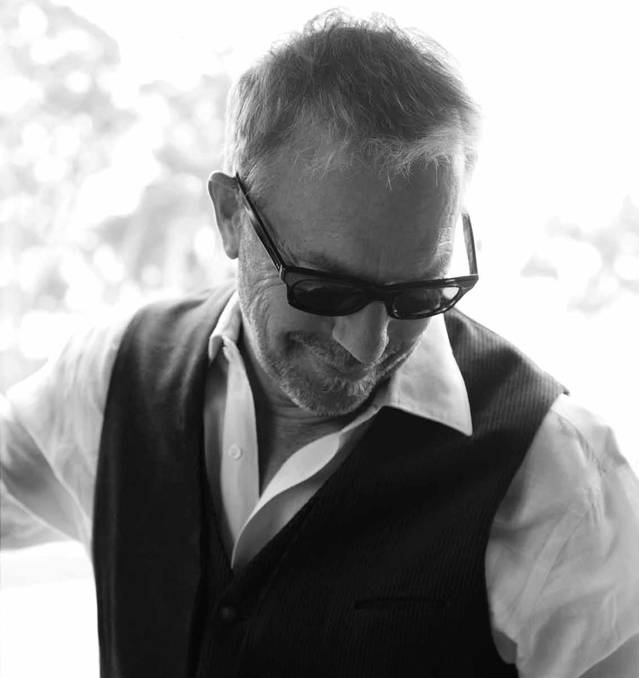
“I’ve lived my life the way I’ve wanted to on my own terms, confined by what the world really is about,” Costner said, trying to explain why someone so successful in one facet of life would choose to take on another. “You try to live your life in a complicated world, and music was always a part of what I had done early and it was just something that I was encouraged to revisit. And I did so with two members of the first band I was ever in. And so, I just felt a desire wherever I was at in the world to actually play. I didn’t translate it into touring; I didn’t translate it into making a record. I had no ‘end’ game. I just loved the drama of playing live.” Costner and his band have also recorded an album inspired by Hatfields & McCoys, titled Famous for Killing Each Other, featuring the track These Hills. The album will be released prior to the mini-series.
Kevin Costner & Modern West is currently in the midst of a multi-city tour, performing at intimate venues like the Ridgefield Playhouse in Ridgefield, Conn., Exit/In in Nashville, Tenn., and City Winery in New York, where I went to see Costner’s many talents for myself. The cozy wine bar was packed with Costner fans, middle-aged women who no doubt saw him in his many ‘80’s and ‘90’s films, the younger set who enjoyed his more recent titles, and even Hatfields & McCoys costar Bill Paxton, who cheered on his costar and friend boisterously from the audience. But Costner isn’t naive enough to think that his fame gained through acting and that gained through music are mutually exclusive.
“It is impossible nor would I try to,” he said, of trying to untangle the two. “A lot of the songs that we play and sing were constructed on the movie sets where I was working. This isn’t the time for me to put on black leather pants and now, ‘Let’s just talk exclusively about my music career and that’s all I will talk about.’ That’s not what happens. Sometimes I even play clips from the movies before I go on stage. And in a way it just breaks the ice. I don’t do that all the time, but I wouldn’t even think to separate my movie career and what I do musically. They’re too entwined.”
It all comes back to him being grounded. Grounded in his relationships, grounded by his many passions and grounded by his family. Costner, in all his successes and fame, simply has managed to keep his head on straight and his priorities in check, a feat for anyone living a fast-paced life, but particularly refreshing, and endearing, to find in a Hollywood icon.
“My life is more than just the movies—it’s is the people I travel with, it’s the meals I eat, it’s the songs I’ll sing, it’s the Little League games that I go to, it’s watching my wife continue to be somebody really, really special and it’s watching my children do the same. My eyes are wide open to the good things that are happening to me,” Costner said. As they should be.
Additional reporting by Haley Friedlich

